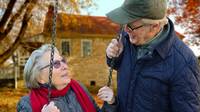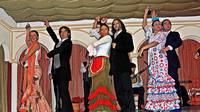
How successfully men and women will adjust to the problems arising from the physical and mental changes that accompany aging and from the changes in status that occur at this time will be influenced by many factors, some of which are beyond their control. The most important of these factors are given and briefly explained in below:
Some Factors Influencing Adjustment to Old Age
Preparation for Old Age
Those who have not prepared themselves psychologically or economically for the changes that old age inevitably brings often find adjusting to these changes a traumatic experience.
Earlier Experiences
The difficulties experienced in adjusting to old age are often the result of earlier learning of certain forms of adjustment that are not appropriate to this period of the life span.
Satisfaction of Needs
To be well adjusted in old age, men, and women must be able to satisfy their personal needs and live up to the expectations of others within the framework of life provided for them.
Retention of Old Friendships
The more old friendships the elderly are able to retain, the better adjusted and happier they will be. Moving to other areas or outliving their friends militates against this.
Grown Children
Attitudes of grown children toward their elderly parents and frequent associations with them contribute to good personal and social adjustment on the part of the elderly.
Social Attitudes
One of the greatest handicaps to good adjustment in old age is society’s unfavourable attitude toward the elderly.
Personal Attitudes
A resistant attitude toward aging and to adjustment to the changes aging brings is a serious obstacle to successful adjustment in old age.
Method of Adjustment
Rational methods include accepting the limitations of age, developing new interests, learning to give up one’s children, and not dwelling on the past; irrational methods include denying the changes that come with age and trying to continue as before, becoming preoccupied with the pleasures and triumphs of bygone days, and wanting to be dependent on others for bodily care.
Health Conditions
Chronic illness is a greater handicap to adjustment than temporary illness, even though the latter may be more severe while they last than the former.
Living Conditions
When elderly people are forced to live in places that make them feel inferior, inadequate, and resentful, this has an unfavourable effect on the kind of adjustments they make to old age.
Economic Conditions
It is especially difficult for elderly people to adjust to financial problems because they know that they will have little or no opportunity to solve them, as they could when they were younger.
There are many criteria that can be used to assess the kind of adjustment elderly people make, four of which are especially useful. They are quality of behaviour patterns, changes in emotional behaviour, personality changes, and life satisfaction or happiness. Each of these criteria will be discussed below.


















